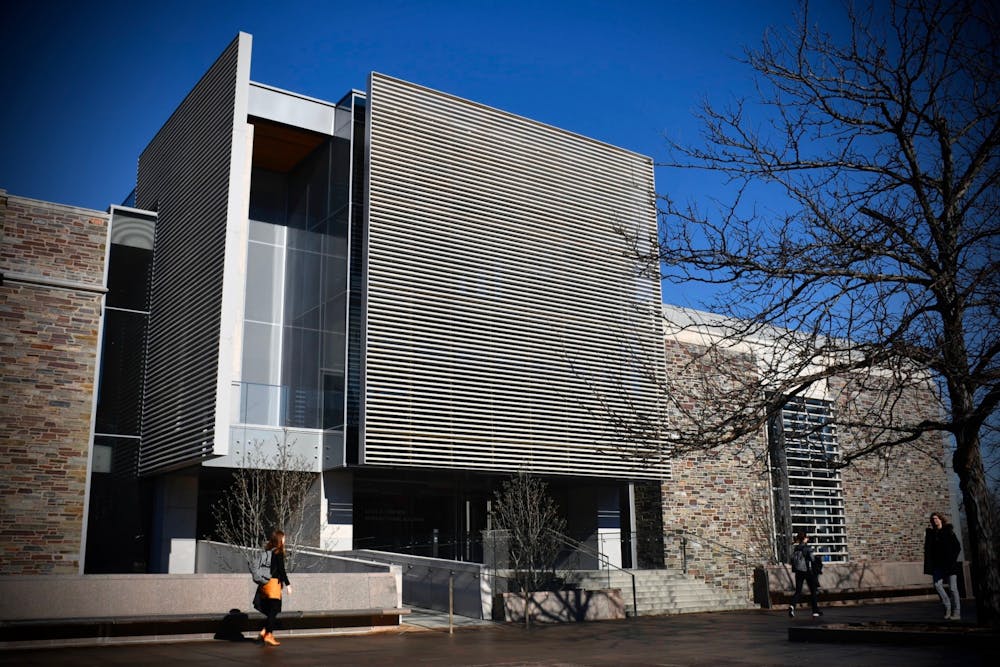Students who wish to travel internationally on the University’s dime will now be required to get special certifications or exceptions from University officials, according to revised guidelines by Princeton’s Global Safety & Security Unit (GS&S) released on March 21.
The new guidelines will apply to travel in the summer of 2022 and beyond.
In an email to The Daily Princetonian, Deputy University Spokesperson Michael Hotchkiss said that the certification and exception processes are intended to serve as safeguards for travel sponsors within the University who are considering potential risks before approving international travel.
“For undergraduate students participating in Princeton-sponsored internships, programs or research opportunities abroad, the certification or exception will be granted by the Office of the Dean of the College and the Office of the Vice President for Campus Life,” he said. “Both offices are working closely with students to assist with the completion of the necessary certification or exception process.”
According to a letter by Associate Provost for International Affairs and Operations Aly Kassam-Remtulla to the University community, these guidelines are not specific to COVID-19 and will not be subject to change as the pandemic continues to evolve.
“This guidance establishes a more permanent structure for how we will ensure the health and safety of our travelers, accounting for but no longer centered on the pandemic,” Kassam-Remtulla wrote.
The revised guidelines announcement comes as some University international travel programs for the coming summer continue to be reassessed.
Princeton in Munich, for instance, will be held remotely this summer instead of in Germany, according to an announcement by the program’s director Adam Oberlin on March 30.

In an email to students obtained by the ‘Prince,’ Oberlin described the decision to go remote as the result of “ongoing uncertainty about the effect of Covid regulations on the cultural component of the course; the impact of the conflict in Ukraine; the estimated financial implications of rising costs on-site.”
Oberlin also mentioned “the need to have adequate lead time to prepare an online alternative” as part of the reasoning for why the announcement came at this time.
Other students are still awaiting approval of their impending travel plans. In an interview with the ‘Prince,’ Cathleen Weng ’24 described the process of requesting funding from the University for a Florida State University summer program in Cosa, Italy.
After initially requesting funding from the classics department, Weng described the process of waiting for University approval as “a limbo process of not being sure at all when the University would make this decision.”

Weng is an Associate Prospect Editor for the ‘Prince.’
Still, other international programs are proceeding as planned. After a period of uncertainty, Nomi Willis ’24 now has confirmation that her global seminar “Conflict, Borders, Multilingualism, Translation” in Cyprus has been approved to proceed in-person.
“They hadn’t guaranteed anything until I think last week, confirming that it would be in country,” she said.
Willis’ experience seems more in line with what Hotchkiss said is the University’s shift to a minimally restricted travel protocol.
“Happily, the University’s new permissible travel guidelines allow for a scope of international travel nearly as broad as before the pandemic began, while still accounting for the many risks and complexities of international mobility,” he wrote.
Under the revised guidelines, travelers seeking certification for their trips are instructed to download and fill out certification forms from GS&S that will be reviewed and signed by the certifier. Certifiers will “have their own internal process for review and signing.”
The process of requesting certification for international travel is dependent on the risk category distinction (A, B, C, or X) that has been given to international locations by GS&S. These categories proceed in order of increasing risk — with destinations in category A deemed to present no disruptions greater than those faced while traveling domestically. Conversely, destinations in category C are deemed to present a substantially higher risk than that posed by domestic travel.
The potential risk is determined by travel warnings issued by the U.S. government, lack of U.S. diplomatic presence in that location, the imposition of sanctions on that location, or the presence of conflict.
Travel to a category C location requires an exception to be issued by a senior University administrator that allows travel to a destination that would “otherwise be prohibited on the basis of risk.” The Dean of the College or the Vice President for Campus Life must approve this exception, which “requires at least three working weeks to be completed” from the time of first contact.
Travel has been suspended to locations with a category X distinction.
The risk level for international locations can be checked online through GS&S.
GS&S is now assessing international travel via “Princeton-specific assessments,” moving away from “an exclusive reliance on the State Department’s travel advisories,” according to Kassam-Remtulla.
Princeton’s International Internship Program (IIP) contacted students on March 23 to share the revised guidelines. IIP expressed their plans to contact students with “information about how [their] office can provide support to help [students] navigate the GS&S process.”
These new guidelines go into effect for travel beginning April 4.
Isabel Yip is an Assistant News Editor who typically covers University Affairs and student life. She can be reached at isabelyip@princeton.edu or on Instagram at @isaayip.








